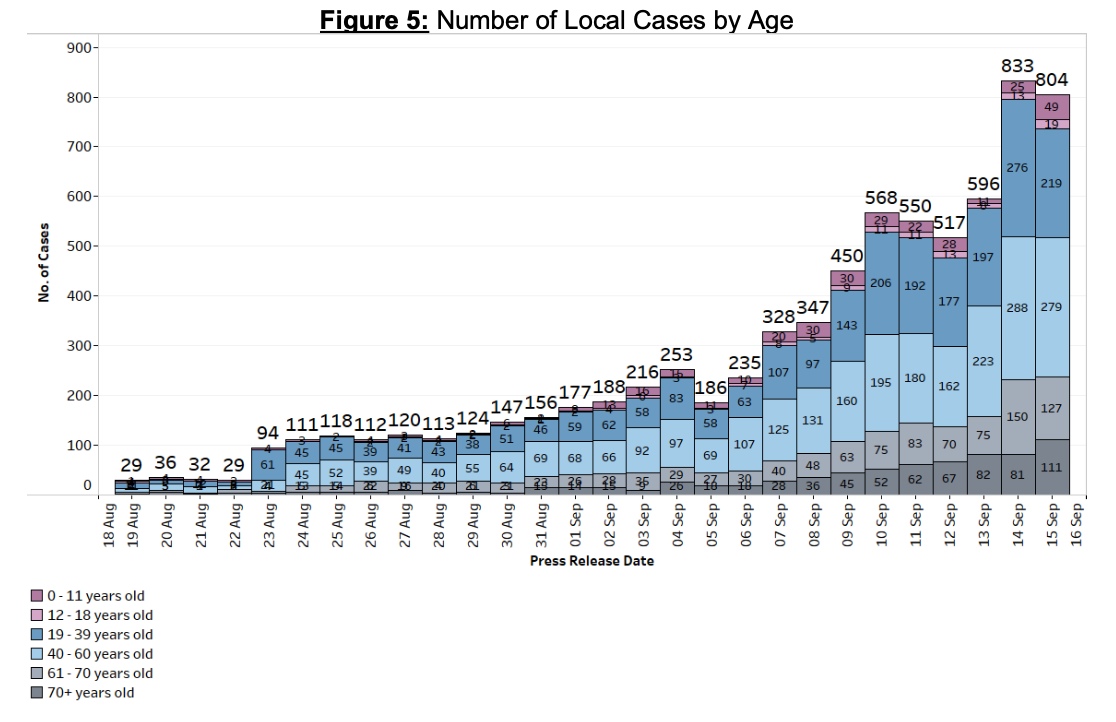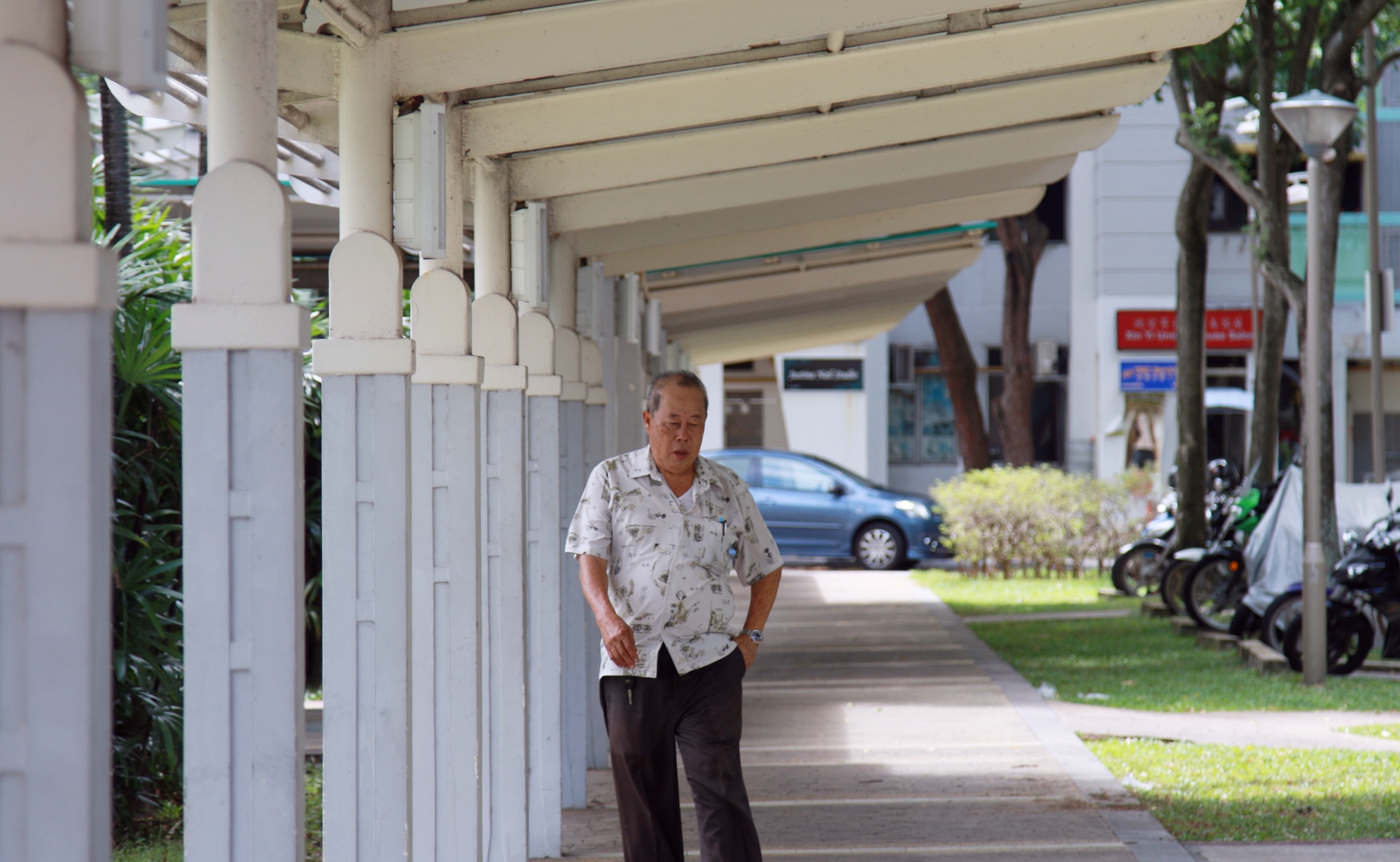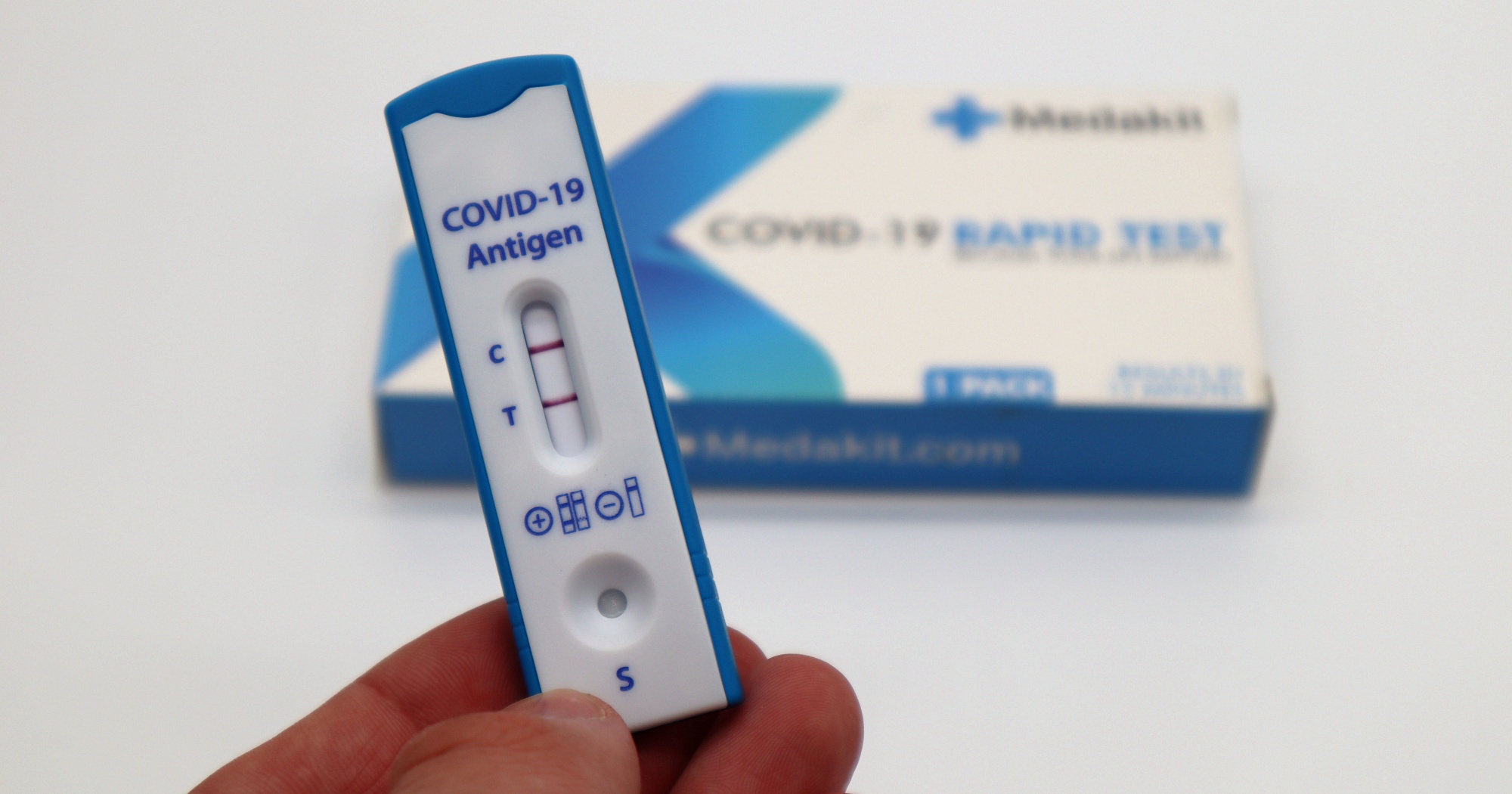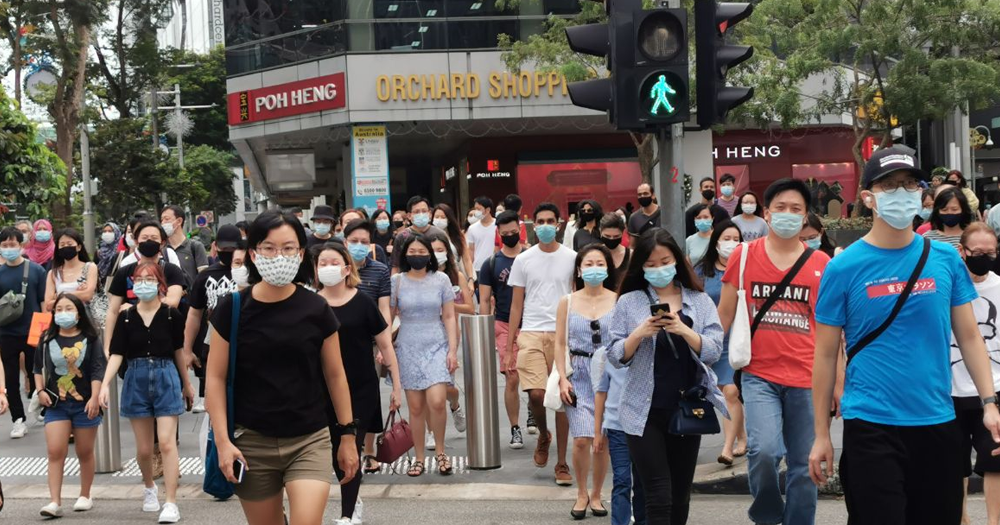Follow us on Telegram for the latest updates: https://t.me/mothershipsg
If there's one thing that we're pretty sure of now, it's that Singapore is dead set on living with Covid-19.
Over 80 per cent of the population has been fully vaccinated, and with that, the country has officially eased into a pre-endemic transition phase. We can see that life in Singapore is starting to resemble — bit by bit — pre-pandemic normalcy.
People are now allowed to eat outside in groups of up to five. We have opened up vaccinated travel lanes with Brunei and Germany. Vaccinated folks who get infected with Covid-19 can now recover at home instead of a hotel or care facility.
Vaccination appears to be the magical key to unlocking the tiresome restrictions that have plagued Singaporeans for over a year.
Yet as the restrictions eased, the case numbers started to climb. Over the course of the first two weeks of September, the number of daily new infections has jumped from 180 to 837. That's an increase of 365 per cent.
But even so, save for some minor workplace measures, the Multi-Ministry Task Force (MTF) remained resolute in not tightening further.
The spike in cases was expected, said the MTF on September 10. MTF co-chair Lawrence Wong also cautioned that Singapore might see daily case numbers hit 2,000 soon.
Should we be worried about the spike in daily cases?
There's no need to be concerned, according to Paul Tambyah, President of the Asia Pacific Society of Clinical Microbiology and Infection.
"What the spike tells us is that despite our best efforts, the virus has well and truly become endemic like all previous pandemic viruses from the deadly 1918 “Spanish” flu pandemic through the 2009 H1N1 influenza A pandemic."
Despite the spike, the number of serious cases and those in the ICU currently remains low — thanks to Singapore's high vaccination rate.
 The number of local cases has been rising sharply. Graph via daily MOH report.
The number of local cases has been rising sharply. Graph via daily MOH report.
Crucial to look out for severe disease now
But not all of the population has been fully vaccinated, and there's always a risk that Singapore's limited hospital facilities will be overwhelmed, especially by older folks who have not been vaccinated.
And so, the most crucial thing to look out for right now is severe disease, said Dale Fisher, a professor with the Department of Medicine at the NUS Yong Loo Lin School of Medicine:
"Obviously anyone can progress [to more severe stages of infection], but particularly, older people can transition through infection to needing oxygen, to needing intensive care and then to dying.
Families and friends of the unvaccinated elderly should do whatever they can to help. Covid-19 is becoming endemic, infection will be highly likely so they need protection. "
 Elderly people, especially the unvaccinated, are more likely to progress from infection to serious illness. Image by Joshua Lee.
Elderly people, especially the unvaccinated, are more likely to progress from infection to serious illness. Image by Joshua Lee.
This is why the elderly are being advised to stay home for now to avoid catching Covid-19 and running the risk of getting severe disease.
In the meantime, some measures have to be maintained until most of the older unvaccinated group becomes fully vaccinated or gets Covid-19, said Fisher.
The professor was adamant about the need for vaccination as a form of protection for the elderly even when Covid-19 is endemic.
"I don’t expect this to happen but a vaccine mandate for [those over 60] would save hundreds of lives and allow many restrictions to be lifted faster. The virus will find them even if they live alone."
Should we expect to get infected with Covid-19 sooner or later?
Well, Fisher thinks so:
"Absolutely; what is happening with case numbers is totally anticipated and will continue to rise into the thousands with little impact on the vast majority. Many vaccinated will be infected but will almost always get mild or asymptomatic disease, and this could be good in many ways as it’s like a booster jab."
Fisher also clarified that occasionally, there will be symptomatic cases which get severe disease and pass away. However, these cases will be uncommon. Most infections will look a lot more like the flu.
 With Covid-19 becoming endemic and restrictions easing, people in Singapore should expect to get infected sooner or later with a mild version of Covid-19. Photo by Medakit Ltd on Unsplash
With Covid-19 becoming endemic and restrictions easing, people in Singapore should expect to get infected sooner or later with a mild version of Covid-19. Photo by Medakit Ltd on Unsplash
Living with booster shots and virus variants
As Covid-19 becomes endemic and we start treating the virus like the common flu, should we also be concerned about things like vaccine booster shots and virus variants?
Already, the government is rolling out booster shots for those above 60 and the immunocompromised.
These groups are the most vulnerable and hence they are receiving booster shots. However, for the rest of the population, the evidence supporting third jabs is still emerging, said Fisher.
Viruses are constantly mutating, giving rise to new variants.
The current one which is of concern — the Delta variant — is more than two times as contagious as previous variants. It also has a shorter incubation period — four days or less on average, as opposed to six to eight days for the original virus.
 There are currently no new variants of concern right now, said Fisher. Photo by Fusion Medical Animation on Unsplash
There are currently no new variants of concern right now, said Fisher. Photo by Fusion Medical Animation on Unsplash
All these has allowed the Delta variant to become the dominant strain in many countries, accounting for almost all new Covid-19 cases in US, Britain, Germany, and Singapore.
Thankfully, there are no new variants of concern right now, said Fisher:
"Delta is so successful at transmitting it is difficult to imagine a variant emerging that could replace it. We are lucky that globally the surveillance for genetic trends is very robust so this is being closely monitored."
Do we need to be concerned about unlinked cases?
Now speaking about living with Covid-19, should we still be concerned about the number of unlinked cases, as Temasek Holdings chief Ho Ching previously advocated for?
After all, if a population is prepared to live with an endemic disease circulating freely, why would its transmission matter?
Ho's rationale was that this number would give the public a "sense of the pipeline of potential new cases ahead" and "whether our contact tracing is keeping up".
Tambyah also pointed out that the number of unlinked cases has "some value in giving us an idea of the extent of the spread in the community":
"With a persistently high number of unlinked cases, we can persuade those who are not yet convinced that the virus is well and truly endemic and that the restrictions should gradually be lifted. We should treat it like other potentially deadly respiratory infections such as tuberculosis or influenza."
On the other hand, Jeremy Lim, Director of the Leadership Institute for Global Health Transformation (LIGHT) at the NUS Saw Swee Hock School of Public Health, said that the number of unlinked cases is a poor measure to predict if Singapore's health system will be overwhelmed.
Besides, given the large numbers of infected cases and resource constraints, it would be hard to do comprehensive and extensive contact tracing in order to properly categorise linked and unlinked cases.
Lim also pointed out that having a spike in unlinked cases does not mean that Singapore's contact tracing is not working.
"No. It means Covid-19 is endemic, with vaccination, many have no or very mild disease, and contact tracing is harder, needs more resources and has less utility compared to when the strategy was zero Covid (cases)."
To make sense of the Covid-19 situation, Tambyah suggested paying attention to certain data points like the trends of infectious diseases in Singapore (which might include Covid-19 in the near future), and the hospital bed occupancy rate.
"The latter figure is probably the reason for the Multi-Ministry Task Force’s concern as the public hospital bed occupancy rates are already very high by international standards."
Top image credit: Zheng Zhangxin
Follow and listen to our podcast here
If you like what you read, follow us on Facebook, Instagram, Twitter and Telegram to get the latest updates.
